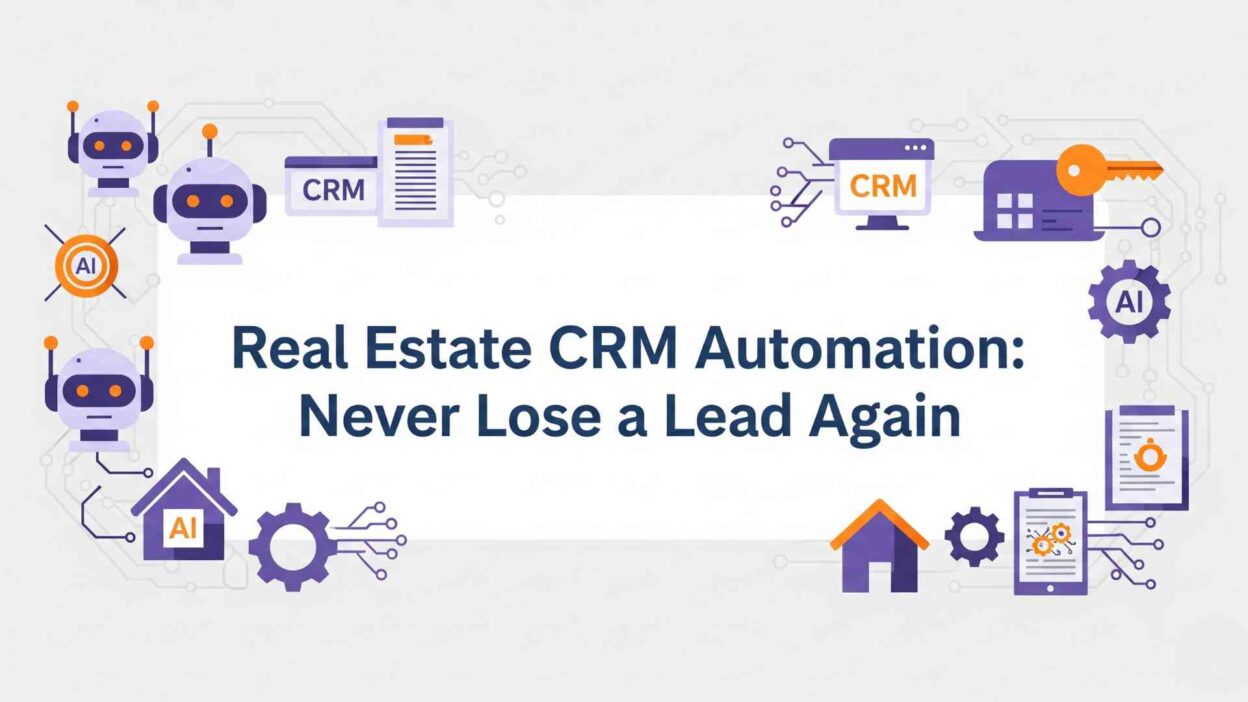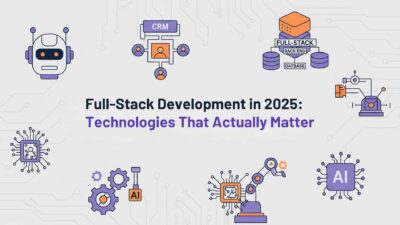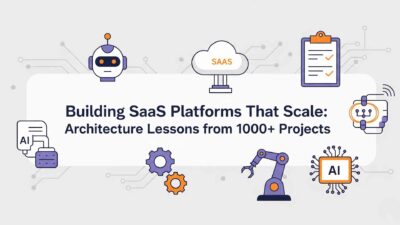The real estate industry is experiencing a fundamental transformation. With competition intensifying and buyer expectations at an all-time high, real estate professionals can no longer rely on manual processes and spreadsheets to manage their business. Modern Real Estate CRM Automation is revolutionizing how agents, brokers, and firms operate, ensuring that every lead is captured, nurtured, and converted into closed deals.
The stakes have never been higher: 74% of buyers work with their real estate agent again or recommend them to others, making efficient client management through automation crucial for building lasting relationships and growing your business. The question isn’t whether you need automation—it’s how quickly you can implement it to stay competitive.
Table of Contents
The Hidden Cost of Manual Lead Management
Real estate professionals lose countless opportunities daily through manual lead management systems. Email inquiries go unanswered for hours, phone calls slip through the cracks, and promising prospects disappear into digital limbo. Traditional methods of managing leads through spreadsheets, sticky notes, and basic email systems create bottlenecks that cost agents valuable time and revenue.
Studies show that real estate automation makes time-consuming tasks easier and you can spare more time on building your brand. Without automation, agents spend up to 60% of their time on administrative tasks instead of focusing on what matters most: building relationships and closing deals.
Understanding Real Estate CRM Automation
Real Estate CRM Automation represents a comprehensive approach to managing customer relationships through intelligent technology. Unlike basic contact management systems, modern CRM automation platforms integrate lead capture, nurturing, communication, and transaction management into seamless workflows that operate 24/7.
Core Components of Real Estate CRM Automation:
Intelligent Lead Capture Systems automatically collect leads from multiple sources including websites, social media platforms, listing portals like Zillow, and referral networks. These systems instantly capture contact information, property preferences, and behavioral data without requiring manual intervention.
Automated Lead Qualification uses sophisticated algorithms to score and prioritize leads based on engagement level, budget, timeline, and property preferences. This ensures high-potential prospects receive immediate attention while lower-priority leads enter appropriate nurturing sequences.
Multi-Channel Communication Automation enables consistent engagement across email, SMS, social media, and phone calls. Automated drip campaigns deliver personalized content based on client segments, interests, and stage in the buying or selling process.
Task and Workflow Management automatically assigns leads to appropriate team members, schedules follow-ups, sets reminders for important deadlines, and tracks progress through customizable pipelines.
Advanced Automation Strategies That Drive Results
Predictive Lead Scoring and Prioritization
Modern Real Estate CRM Automation leverages artificial intelligence to analyze historical data and identify patterns that indicate purchase intent. Systems can predict which leads are most likely to convert based on factors like website behavior, email engagement, property searches, and demographic information.
Behavioral Trigger Automation
Advanced platforms monitor client behavior and automatically respond with relevant actions. When a lead views a specific property listing multiple times, the system can automatically send additional property details, schedule a showing, or notify the assigned agent for immediate follow-up.
Dynamic Content Personalization
Automation systems create personalized experiences by delivering content tailored to individual preferences. A buyer interested in luxury condos receives different marketing materials than someone searching for family homes in suburban neighborhoods.
Cross-Platform Integration and Data Synchronization
Real Estate CRM Automation platforms integrate with Multiple Listing Services (MLS), property databases, digital signature tools, marketing platforms, and financial systems. This creates a unified ecosystem where data flows seamlessly between tools, eliminating manual data entry and reducing errors.
Comprehensive Lead Management Workflows
Automated Lead Entry and Distribution
When leads arrive from any source—website forms, social media, listing platforms, or referrals—automation systems instantly capture all available information and route leads to appropriate agents based on predefined criteria such as location, property type, or agent specialization.
Intelligent Follow-Up Sequences
Automation ensures no lead goes cold through systematic follow-up campaigns. New leads receive immediate acknowledgment emails, followed by educational content about the buying or selling process, market insights, and property recommendations based on their stated preferences.
Appointment Scheduling Automation
Modern systems allow prospects to book appointments directly through automated scheduling tools that sync with agent calendars, send confirmation emails, and provide automated reminders to both parties.
Post-Transaction Relationship Management
Automation doesn’t end at closing. Systems continue nurturing relationships with past clients through anniversary emails, market updates, home maintenance tips, and referral request campaigns. This approach maximizes lifetime customer value and generates ongoing referral opportunities.
Marketing Automation Excellence
Segmented Email Marketing Campaigns
Real Estate CRM Automation enables sophisticated email marketing through audience segmentation based on demographics, behavior, and transaction history. Automated campaigns can target first-time homebuyers, luxury property investors, sellers in specific neighborhoods, or past clients ready for their next move.
Social Media and Digital Marketing Integration
Automation platforms sync with social media management tools to automatically post new listings, share market updates, and engage with prospects across multiple channels. AI-powered systems can even optimize posting times and content formats for maximum engagement.
Lead Nurturing Through Educational Content
Automated systems deliver valuable content including market reports, buying guides, financing information, and neighborhood spotlights. This positions agents as trusted advisors while keeping prospects engaged throughout lengthy decision-making processes.
Document Management and Transaction Automation
Contract Generation and Management
Advanced Real Estate CRM Automation systems automatically generate contracts, purchase agreements, and disclosure documents using template libraries and client information stored in the database. This reduces errors and accelerates transaction timelines.
Digital Signature Integration
Seamless integration with digital signature platforms enables automated document routing, signature collection, and completion tracking. Clients can sign documents remotely while agents monitor progress in real-time.
Compliance and Deadline Management
Automation systems track critical deadlines including inspection periods, financing contingencies, and closing dates. Automated alerts ensure all parties stay informed and no important milestones are missed.
Performance Analytics and Optimization
Real-Time Performance Dashboards
Modern CRM platforms provide comprehensive analytics showing lead sources, conversion rates, agent performance, and revenue metrics. These insights enable data-driven decision-making and continuous process improvement.
ROI Tracking and Attribution
Automation systems track which marketing channels and campaigns generate the highest-quality leads and closed transactions. This information helps agents allocate resources more effectively and maximize return on investment.
Predictive Analytics for Business Planning
Advanced systems use historical data to forecast future sales trends, identify seasonal patterns, and predict market opportunities. This intelligence helps agents plan inventory, adjust pricing strategies, and optimize resource allocation.
Implementation Best Practices for Success
Phase 1: Assessment and Planning
Begin by analyzing current processes to identify automation opportunities with the highest impact potential. Focus on repetitive tasks that consume significant time and directly affect lead conversion rates.
Phase 2: Platform Selection and Integration
Choose Real Estate CRM Automation platforms that integrate seamlessly with existing tools including MLS systems, email platforms, and accounting software. Look for solutions offering customizable workflows, mobile accessibility, and scalable pricing.
Phase 3: Data Migration and Setup
Carefully migrate existing contact databases while maintaining data integrity. Establish standardized data entry protocols to ensure consistent information quality across the system.
Phase 4: Team Training and Adoption
Provide comprehensive training to ensure all team members understand how to leverage automation features effectively. Emphasize how automation enhances their roles rather than replacing human expertise.
Phase 5: Monitoring and Optimization
Establish regular review cycles to analyze automation performance and make adjustments. Track key metrics including response times, conversion rates, and client satisfaction scores.
Advanced Features Driving Competitive Advantage
AI-Powered Chatbots and Virtual Assistants
Intelligent chatbots handle initial client inquiries, qualify leads, schedule appointments, and provide property information 24/7. These systems learn from interactions to improve response accuracy over time.
Voice Recognition and Call Analytics
Advanced platforms analyze phone conversations to extract insights about client preferences, concerns, and buying signals. This information automatically updates client profiles and triggers appropriate follow-up actions.
Geofencing and Location-Based Marketing
Automation systems can trigger location-specific marketing messages when prospects visit certain neighborhoods or properties. This creates timely, relevant touchpoints that increase engagement.
Integration with Smart Home and IoT Devices
Cutting-edge platforms integrate with smart home technology to provide property insights, maintenance alerts, and energy efficiency reports that enhance client value propositions.
Measuring Success and ROI
Key Performance Indicators
Track essential metrics including lead response time, conversion rates by source, average deal size, time to close, and client lifetime value. These measurements provide insights into automation effectiveness and areas for improvement.
Cost-Benefit Analysis
Calculate ROI by comparing automation costs against time savings, increased conversion rates, and revenue growth. Most real estate professionals see positive returns within 6-12 months of implementation.
Client Satisfaction Metrics
Monitor client feedback, retention rates, and referral generation to ensure automation enhances rather than depersonalizes the client experience.
Overcoming Common Implementation Challenges
Data Quality and Standardization
Establish clear data entry standards and regular cleansing processes to maintain database integrity. Poor data quality undermines automation effectiveness and creates frustrating client experiences.
Change Management and Team Adoption
Address team resistance through comprehensive training, clear communication about benefits, and gradual implementation that demonstrates value. Involve team members in selecting and customizing automation workflows.
Integration Complexity
Work with experienced implementation partners to ensure smooth integration with existing systems. Plan for adequate testing and backup procedures during transition periods.
Future Trends in Real Estate CRM Automation
Artificial Intelligence and Machine Learning
AI will increasingly power predictive analytics, automated content creation, and intelligent decision-making within CRM platforms. Machine learning algorithms will continuously optimize workflows based on performance data.
Voice Technology Integration
Voice-activated systems will enable hands-free CRM interaction, allowing agents to update records, schedule appointments, and access client information while driving or showing properties.
Blockchain and Smart Contracts
Emerging technologies will automate contract execution, property transfers, and commission payments through transparent, secure blockchain networks.
Augmented Reality and Virtual Tours
CRM systems will integrate with AR and VR technologies to automatically generate virtual property tours and enhance client presentation capabilities.
Building a Competitive Edge Through Automation
Real Estate CRM Automation isn’t just about efficiency—it’s about creating exceptional client experiences that differentiate your business in a crowded marketplace. Agents who embrace comprehensive automation strategies position themselves to capture more leads, nurture relationships more effectively, and close deals faster than competitors relying on manual processes.
The transformation requires investment in technology, training, and process redesign, but the results speak volumes: increased productivity, higher conversion rates, improved client satisfaction, and sustainable business growth. In today’s competitive real estate environment, automation isn’t optional—it’s essential for survival and success.
By implementing comprehensive Real Estate CRM Automation strategies, you’ll never lose another lead again. Instead, you’ll build a systematic approach to relationship management that scales with your business and delivers consistent results regardless of market conditions.
📧 Email: [email protected]
📞 Phone: 1-347-543-4290
🌐 Website: emasterlabs.com
📍 Address: 1942 Broadway Suite 314 Boulder, CO 80302 USA
Engineer Master Labs – You Think, We Automate, You Profit
Competitors Are Scaling Faster AI





